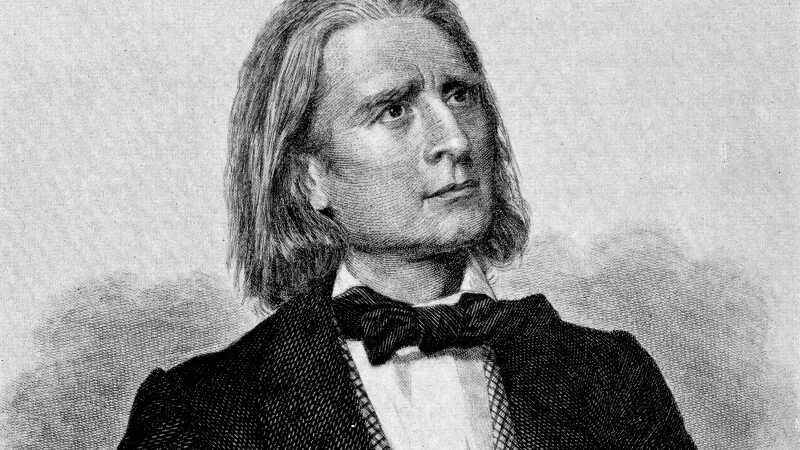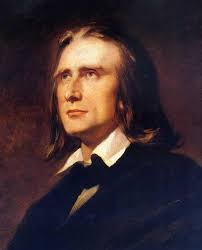Early Life and Education
Franz Liszt, one of the most renowned composers and virtuoso pianists of the 19th century, was born on October 22, 1811, in the village of Raiding, in the Kingdom of Hungary (now in Austria). His father, Ádám Liszt, was an amateur musician who played the piano, violin, and guitar, and worked as an overseer on the Esterházy estate. Recognizing Franz’s prodigious talent early on, Ádám provided his son with his initial musical training.
By the age of six, Liszt was already showing remarkable musical abilities, composing simple pieces and performing in public. His talent caught the attention of Hungarian nobility, who sponsored his musical education. In 1821, the Liszt family moved to Vienna, where Franz studied under the legendary Carl Czerny for piano and Antonio Salieri for composition. His performances in Vienna were met with critical acclaim, earning him the admiration of luminaries such as Ludwig van Beethoven and Carl Czerny.
Rise to Fame
In 1823, the Liszt family moved to Paris, where Franz was denied entry to the Paris Conservatoire due to his foreign nationality. Nevertheless, he continued his studies privately with Anton Reicha and Ferdinando Paer. At the age of 12, Liszt published his first compositions and embarked on extensive concert tours across Europe, gaining widespread recognition for his extraordinary technical prowess and expressive depth.
Liszt’s early career was marked by a series of personal and professional challenges, including the death of his father in 1827. This event left Liszt, then only 16, responsible for supporting his mother, which he did through teaching and performing.
Virtuoso Pianist and Innovator
The 1830s and 1840s were a period of unparalleled success and transformation for Liszt. He emerged as a supreme virtuoso, revolutionizing piano performance with his unprecedented technique and expressive capabilities. His concerts were characterized by their emotional intensity, technical brilliance, and theatrical flair, drawing enormous crowds and establishing him as the first true “superstar” of classical music.
Liszt was also a pioneer of the solo piano recital, a concept he developed in 1839, where he performed entire concerts alone, a departure from the traditional format involving multiple performers. His innovative transcriptions of symphonies, operas, and other orchestral works for solo piano expanded the instrument’s repertoire and demonstrated its expressive potential.
Compositional Maturity and Later Life
Liszt’s compositional style evolved significantly over his career. Initially influenced by the Romanticism of his time, he developed a highly individual voice, blending virtuosic brilliance with profound emotional depth. His works from this period include the “Transcendental Études,” “Hungarian Rhapsodies,” and his first piano concerto.
In 1847, Liszt retired from the concert stage to focus on composition, conducting, and teaching. He accepted a position in Weimar as Kapellmeister, where he championed the works of contemporaries such as Wagner, Berlioz, and Schumann. His Weimar years were marked by significant compositional output, including his symphonic poems—a genre he invented—such as “Les Préludes” and “Hamlet.”
Liszt’s personal life during this period was complex. He had three children with Countess Marie d’Agoult, with whom he had a tumultuous relationship. Later, he formed a close bond with Princess Carolyne zu Sayn-Wittgenstein, who supported his artistic endeavors and influenced his spiritual and intellectual development.
Spiritual and Late Compositional Period
In his later years, Liszt experienced a profound religious transformation, reflected in his compositions. He took minor holy orders in the Catholic Church in 1865, becoming known as Abbé Liszt. His religious works, such as the oratorios “Christus” and “Die Legende von der Heiligen Elisabeth,” and numerous choral pieces, display his deep spiritual convictions.
During his final years, Liszt divided his time between Rome, Weimar, and Budapest, continuing to compose, teach, and influence a new generation of musicians. His later compositions, including the “Bagatelle sans tonalité” and the “Czardas macabre,” exhibited a forward-looking harmonic language that anticipated many 20th-century developments.
Legacy
Franz Liszt passed away on July 31, 1886, in Bayreuth, Germany, leaving behind a vast and diverse body of work that has had a lasting impact on the music world. He was not only a towering figure of the Romantic era but also a visionary who pushed the boundaries of musical expression and piano technique.
Liszt’s influence extended beyond his compositions and performances. As a teacher, he mentored many prominent pianists and composers, including Hans von Bülow, Carl Tausig, and Alexander Siloti, shaping the future of classical music. His advocacy for other composers and his innovations in piano performance and recital format solidified his place as a pivotal figure in the history of Western music.
In sum, Franz Liszt’s extraordinary talent, innovative spirit, and profound contributions to music have earned him a revered place among the greatest composers and performers of all time. His legacy continues to inspire and challenge musicians and audiences alike.


Comments are closed